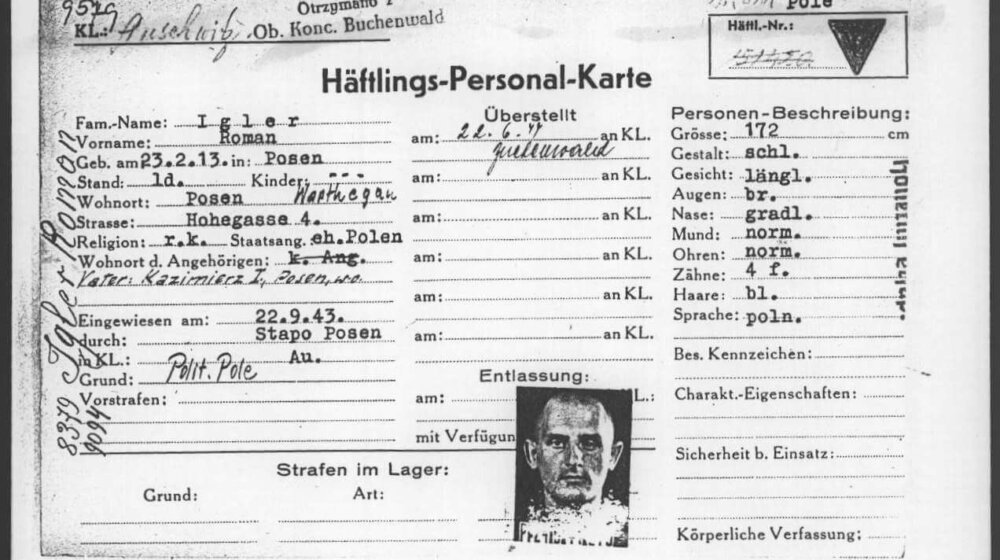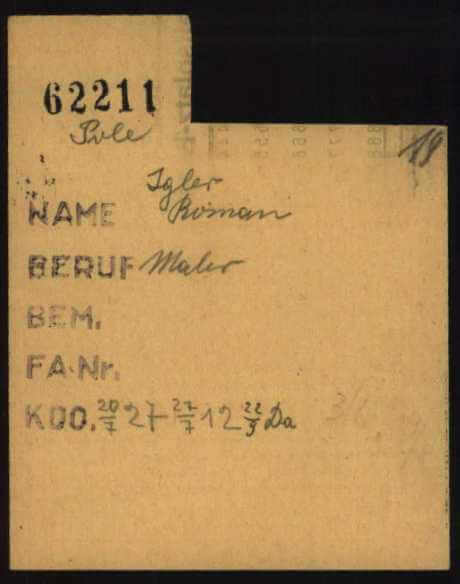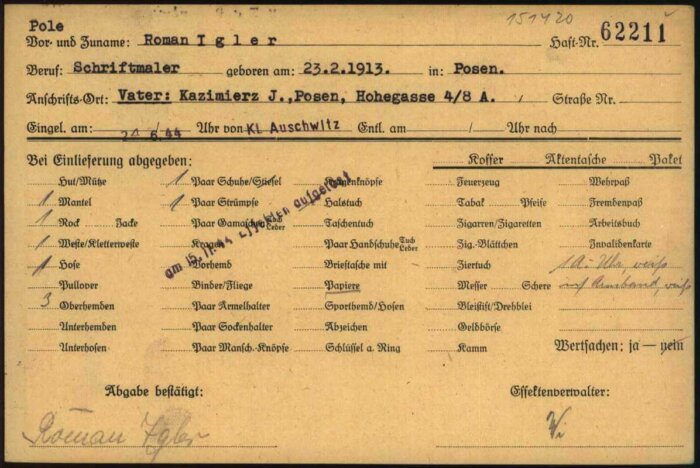Arrested for homosexuality: Roman Igler

Polish scholar Joanna Ostrowska authored this guest article, which tells the story of Roman Igler. His biography serves as an example of how homosexual men were persecuted during the Nazi regime in Poland as well.
Roman Igler was born in Poznań in 1913. He was a Polish national and a Catholic. He worked as a painter in 1941, but before the war he took up a career as a merchant. At 28 years of age, he was sentenced to two years in prison in 1941 for three counts of fornication with men. His verdict stated:
„The defendant Igler got into the habit of masturbating with other men while he was a prisoner of war. Precise findings are no longer possible in this respect. Between September 1939 and January 1940, the accused masturbated mutually with at least one other prisoner of war 10-20 times based on a mutual decision made beforehand. He also engaged in such activities four times with his acquaintance Niewitecki in Poznań between June and August 1940. These acts of sexual misconduct were carried out once on the Warta River and otherwise in apartments. In January or February 1941, Igler masturbated with an acquaintance in a hallway on Schwaben Street in Poznań“. These acquaintances were Polish nationals as well.
“Individual dangerous to the community”
He served his sentence in Poznań prison and in Wronke penitentiary until July 24, 1943. In the second half of February 1942, Igler was punished along with two other prisoners for smoking cigarettes and for the ensuing fire in the cell. The recklessness of his cellmates cost Roman Igler three months in a prison camp. On July 25, Igler was arrested again by the Gestapo in Poznań as an “individual dangerous to the community,” and two months later he was transported to the Auschwitz I concentration camp. His prisoner number was 151.420.


Documents about Roman Igler
On June 20, 1944, Roman Igler was transported to Buchenwald concentration camp. The accompanying personal effects register lists the following possessions under his name: one coat, one sweater, one vest, one pair of pants, three undershirts, one pair of shoes, and one pair of underpants. In addition, a document case, a watch with a metal bracelet, and just under RM 89. In Buchenwald, Igler was given the number 62.211 and was again registered as a Polish political prisoner.
On September 22, Igler was transported to Mittelbau-Dora concentration camp. Before the end of the war, most likely in April 1945, Roman Igler was transferred once again – this time to the men’s camp of the Ravensbrück concentration camp. He survived the war and returned to his hometown of Poznań before July 1945. Not much more is known about his life after the war. His gravestone can be found in the Cmentarz Górczyński cemetery in Poznań but it does not bear his name – only that of his sister Alina. The year of Roman’s death is listed as 1965.

»Up until 2020, scholars were sure that a situation like the one Roman found himself in was not possible. For me, it’s important to highlight the fact that German men were not the only people who were persecuted by the Nazis under paragraph 175, there were Polish men who suffered the same fate.«
Joanna Ostrowska, historian, film scholar and dramaturge, Copright: W. Orski
You can read a detailed interview with Joanna Ostrowska here.

